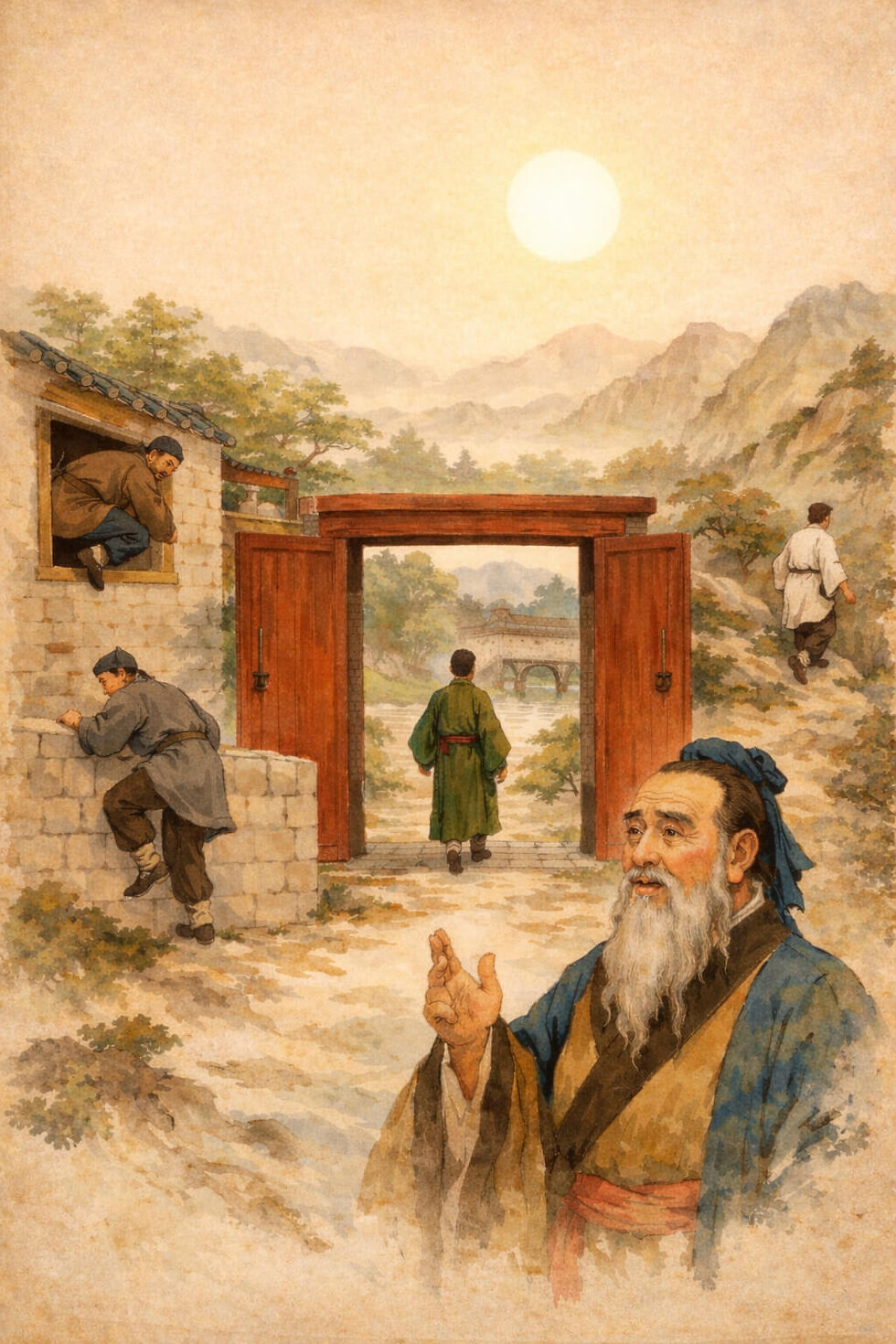Confucian Idea of a Door 出不由戶
- Feb 5, 2024
- 2 min read
Updated: Feb 14

In Door to the Source of Creation, there is a Confucian saying that points to a hidden place:
論語, 雍也第六. 子曰:「誰能出不由戶,何莫由斯道也?」
In the Analects, Confucius said, “Who leaves a house without using the door? Then, why not follow this Way?”
As Confucius suggests, the main door is not just a physical entrance. It is a symbol. It points to the primary gateway through which our inner life is guided. This door represents the proper path human beings are meant to follow, not forced from the outside but entered naturally from within.
Another passage from the Analects helps clarify this idea of the path:
論語, 學而, 二: 有子曰:君子務本,本立而道生。
In the Analects, Youzi said, “A person of character focuses on what is fundamental. When the foundation is firm, the path naturally follows.’”
Returning to the image of the door, this root is our moral center. It is the same as our true self, our spirit, or our original nature. When we live in harmony with it, the moral path does not need to be imposed. It arises on its own.
The word moral can feel uncomfortable for many people. It often sounds rigid or judgmental. I felt that way too, especially in my early years of studying Eastern philosophy. Over time, though, I came to see that the morality spoken of here is simply the quiet voice of conscience. When we listen to it, we feel more at ease. There is less inner conflict. What takes its place is a steady peace and a deeper, more lasting joy.


